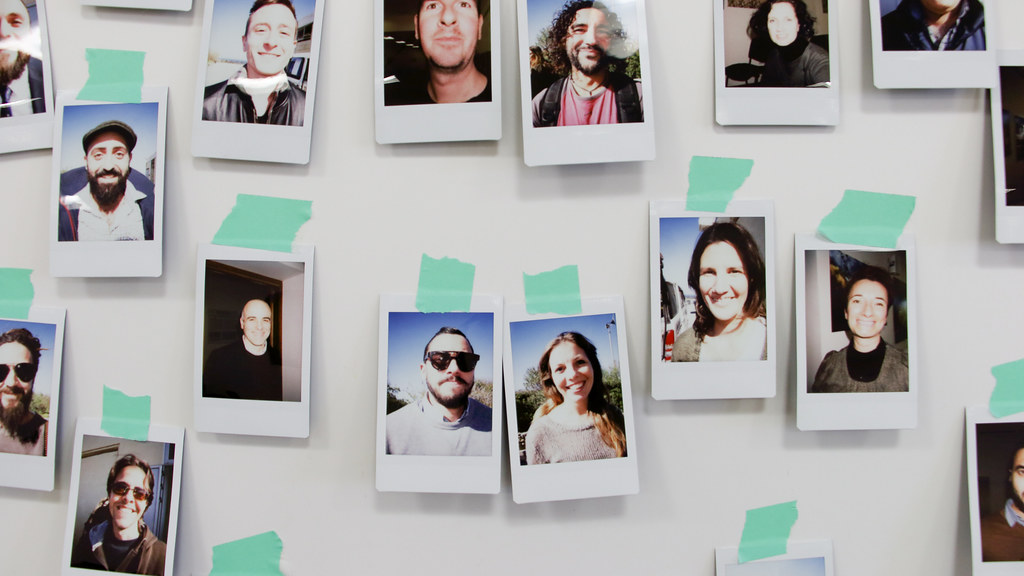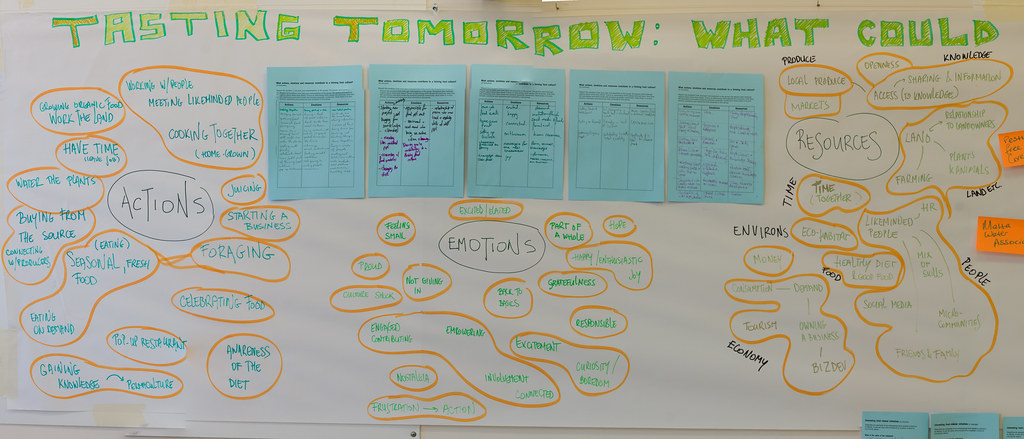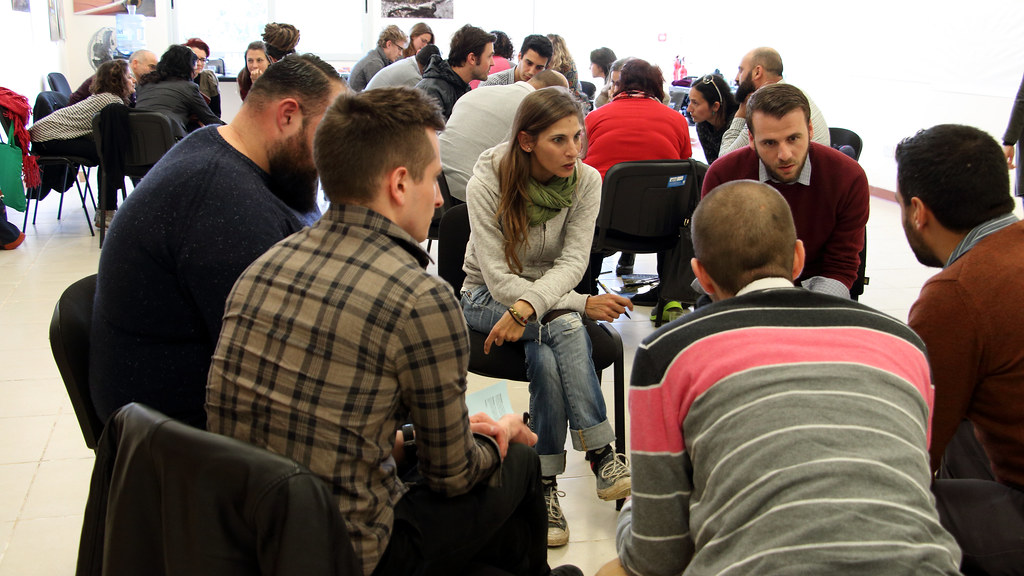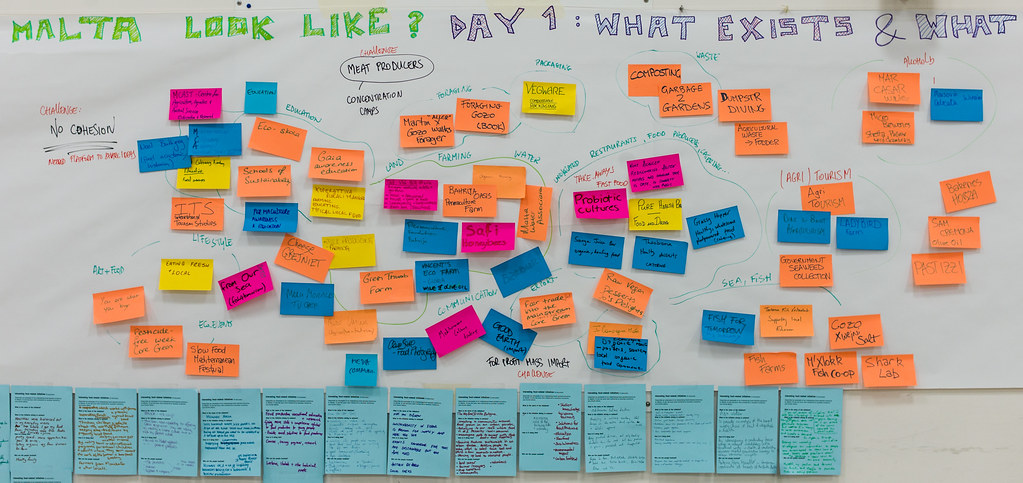Tasting Tomorrow: Fieldwork
Tasting tomorrow is a series of three participatory events exploring food futures in Malta. The first workshop was a conversation about the current situation on the island, focusing on initiatives that promote wellbeing for people and the environment alike. During the workshop local food-experts and enthusiasts had a chance to share their individual and collective insights, map interesting food initiatives in Malta, and discuss their activities, challenges, needs and opportunities. The information collected during the workshop forms the basis for a futuring exercise and a food event in the spring.
Workshop participants: Kurt Mifsud, Peppi Gauci, Malcolm Borg, Ghislaine Calleja, Greta Muscat Azzopardi, Veronica Farrugia, Natalie Debono, Claire Borg, Yasmin De Giorgio, Jo'Anna Vella, JD Farrugia, Kurt Micallef, Tom Diacono, Emanuela De Giorgio, Claude Falzon, Ingrid Zarafa, James Schiavone, Antoine Borg Micallef, Stephen Schiavone, Joe Schiavone, Johannes Buch, Debbie (Pure), Trevor Diacono, Stephen La Rosa, Jorge Spiteri, Richard Vella, Alana (Coffee), Gilbert (Coffee), Gloria Camilleri, Krisztina Hangya, Neal Debono.

Photos of the workshop on Flickr
Interactive map of interesting Maltese food initiatives on Kumu.
(The information on this map can be edited using this online spreadsheet.)
Workshop design and facilitation: Maja Kuzmanovic and Nik Gaffney of FoAM
Co-ordination: Tina Auer and Tim Boykett of Time's Up and Gaby Giacchino
The workshop took place on the 9th of March 2017 in the Xrobb L-ghagin Nature Park and Sustainable Development Centre.
Harvest

Thriving food culture
Questions
Think of a time in your life when you felt that you were a part of a thriving food culture in Malta. What did you do? How did you feel? What made this situation possible? What might be needed for a thriving food culture to become more prominent in Malta?

Answers
Actions contributing to a thriving food culture:
- Increasing knowledge and awareness of all aspects of food culture
- Having access to seasonal fresh food; using food preparation techniques that preserve nutritional values of ingredients (e.g. juicing, raw food…)
- Buying from the source, connecting with producers
- Growing (organic) food; farming; permaculture; working the land - growing, farming, watering, weeding…
- Finding connections between food and local environment through activities such as foraging
- Meeting and working with like-minded people, cooking together
- Developing sustainable/alternative businesses
- Celebrating food in all its guises, including pop-up events and restaurants
Emotions involved in experiencing (aspects of) a thriving food culture:
- engagement, involvement, contribution, empowerment
- curiosity, interest, openness
- connection, being a part of a larger whole
- a good balance between humility and pride
- tension, resistance, culture shock, not giving in, moving from frustration to action
- responsibility
- nostalgia
- excitement, elation, entusiasm, happiness, joy
- gratefulness
- hope
Resources required for a thriving food culture to exist:
- Good food and a healthy diet
- Time (together)
- Money
- A healthy ecological habitat
- (Farm)Land, good relationships with land-owners, healthy plants & animals
- Access to good markets and local produce
- Access to knowledge, open sharing of information
- Connections with like-minded people; getting support from friends & family; connecting to micro-communities; access to human resources with a diverse mix of skills; connecting through social media
- Sustainable economic factors: a good balance between supply and demand; Sustainable, innovative, dynamic business development; Sustainable tourism
Challenges preventing the emergence of a thriving food culture in Malta:
- No cohesion, fragmentation, no platform to share ideas and collaborate
- Unsustainable meat production (animal concentration camps)
- Wide-spread fast-food culture
- Profit driven mass imports
- Fish-farms
- Mass/conservative tourism

Mapping initiatives
Questions
What would you consider interesting food initiatives on the island focusing on the wellbeing of people and the environment? How do the initiatives relate to each other? What is their position on the supply chain?

Answers
The answers have been visually mapped on the Interactive map of interesting Maltese food initiatives (focusing on the wellbeing of people and the environment), based on information collected during the workshop. The information on this map can be edited using this online spreadsheet.

Needs & offers
Questions
What would you need and what could you offer to create a more thriving food culture in Malta?

Needs
'Thriving' across the whole food-chain:
- (Undisturbed) Land, pesticide free, soil preservation
- Urban gardening and other green spaces in cities
- Sustainable fishing
- Better supply of a variety of produce, local fresh fruit and vegetables in larger volumes, closer connection to 'real' food
- A healthy bakery
- More vegan options and resources
- Matching distribution process between catering and local farmers
- Food recycling, composting and other food-waste solutions
People:
- Human resources - (young) workers in agriculture and foodservice (including volunteers)
- Access to-, support and attention from clients, government, industry, politicians and policy makers
- People open to try new things, a more open-minded and environmentally aware consumer base
- Involvement of scientists, R&D and food laboratories
- Better marketing for food initiatives
- Connecting food and culture through arts and design, more pop-up events and creative cohesion
Supportive economic and political climate:
- Funding, including financial support for micro-businesses
- Better government policies
- Less bureaucracy and top-down regularisation, more tax incentives and other resources to make the sector grow
- More outlets
- Less traffic
Collaboration and networking:
- Interesting initiatives and more collaboration and discussion between initiatives
- Networking with likeminded people; Creating a network of a “thriving food culture in Malta” to be presented in public and media, sharing good practices and creating a critical mass that can’t be ignored
- Creating a multistakeholder network across the whole food chain
Raising awareness and education:
- Awareness of water issues, water harvesting, collaboration for a water campaign
- Environmental awareness of the carbon foot-print of food, sustainable development
- Transparency and awareness of the whole supply chain (what it takes to get food to your plate), including conventional and alternative approaches to farming, ethical consumption as well as better monitoring and labelling of food origins
- More widespread food education
- Responsibility and care, respect for nature
- Acknowledgement and appreciation of the work of farmers
- Collective access to data and statistics about local food systems
- Outdoor food-related activities for inspiration and information

Offers
Foods and products:
- (Organic, pesticide free, fair-trade, nutritious) locally grown fruit and vegetables (including micro-greens, shoots, sprouts and wheat grass)
- Seeds and seedlings,
- Probiotic fermentation
- Honey, pollen, propolis, royal jelly, beeswax, mead, kombucha, kefir (water and milk)
- Olive oil
- Delicious desserts
- Healthy catering
Networking and peer-learning:
- Time, passion, openness, creative (culinary) mindsets…
- Access to networks across the whole food chain, Networking opportunities of various kinds…
- Advice, support, mentoring (for food-related entrepreneurs), classes, consultancy
- Access to water experts, artists and creatives
People and places:
- Chefs (as mediators between producers and consumers)
- Interesting restaurants and eateries
- Food and eco-events, venues for events and workshops
- Connection to nature, rural tourism
- Cottage/micro industry
- Art+Food events
- Urban gardens
Education:
- For children and adults about environmental impacts of consumer choices, to encourage young people to farm and add value to the job
- On sustainable projects and farming
- On nutritious and delicious food, creative products and innovation projects
- R&D and sensory analysis, consumer science
- Presentations, talks and workshops
- Alternative traditions
- Knowledge on healthy living
- Raising awareness through cooking, photography and teaching
Communication:
- Social media support
- Writing, branding, marketing
- Communication services on ethical food supply chain
